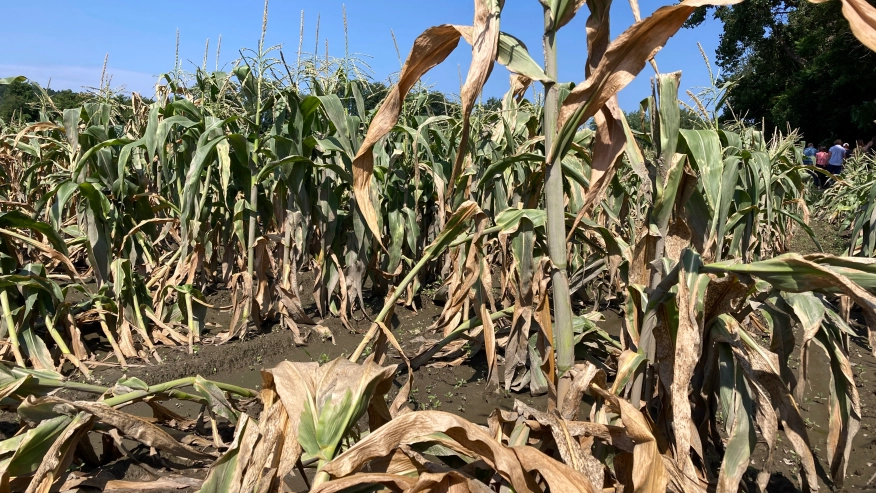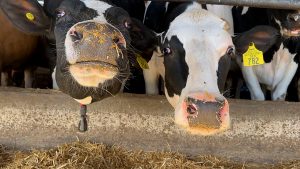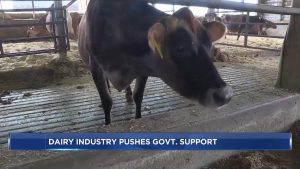
Vermont state and federal officials on Monday urged farmers to document and report damage from the catastrophic flooding that hit the state two weeks ago and inundated crops in the rural mountainous state known for its scenic farmland.
They toured Paul Mazza’s Fruit and Vegetable farm, where fields were under 20 feet (6 meters) of water during the flooding, including row after row of blueberry bushes laden with berries and corn. The crops are now contaminated and unsellable. Mazza, who has seven farms in different locations, estimates he has about 25% of his produce left. Fields are covered with sediment and piles of sand from the river.
“It’s a killer. My head just spins,” Mazza said. “I lost my shirt,” he added.
A 2021 state government report on Vermont agriculture credited maple producers, apple orchards, farms, cheese, and ice cream for having “long defined the Vermont experience” and said agriculture is a key engine of the state’s economy. “Small towns cannot thrive without economic opportunity or without the innovation that agricultural and food businesses bring to our rural landscapes,” the authors wrote. “And, unless Vermont farm families can earn a sustainable living from their open productive agricultural land, it becomes a target for development, is chiseled off and sold, or becomes overgrown and under-utilized.”
The latest storms in Richmond flooded a couple hundred acres of corn and a couple hundred acres of hay at Conant’s dairy farm. “The velocity of water that came through was tremendous,” said Dave Conant.
The fields are so laden with silt that they don’t even want to put their equipment through them, he said.
“The beauty of Vermont has taken a hit,” Conant said.
Vermont is the top dairy producing state in New England and has a strong local foods movement.
U.S. Sen. Peter Welch, a Democrat, urged Mazza, his daughter, and other farmers, to document the losses so he and the rest of the congressional delegation can make the case for funds when a disaster relief bill reaches the Senate floor, he said.
Republican Gov. Phil Scott has asked the U.S. Department of Agriculture for a federal disaster designation, which would make farms eligible financial assistance, including low-interest emergency loans.
After seeing what Mazza and his family have experienced, the governor said he recognizes the devastation and frustration as well.
“You have berries still on the vine, and you have apples still up there on the trees but they can’t be utilized,” Scott said. “This is going to be a long, long-term effort for them and for many parts of the state with different experiences.”
Scott said he’s confident the state will receive more federal help, but doesn’t think it will enough.
“We’re going to have to dig deep. We’re going to have to be creative and reach into every pot in order to get through this,” he said.

























